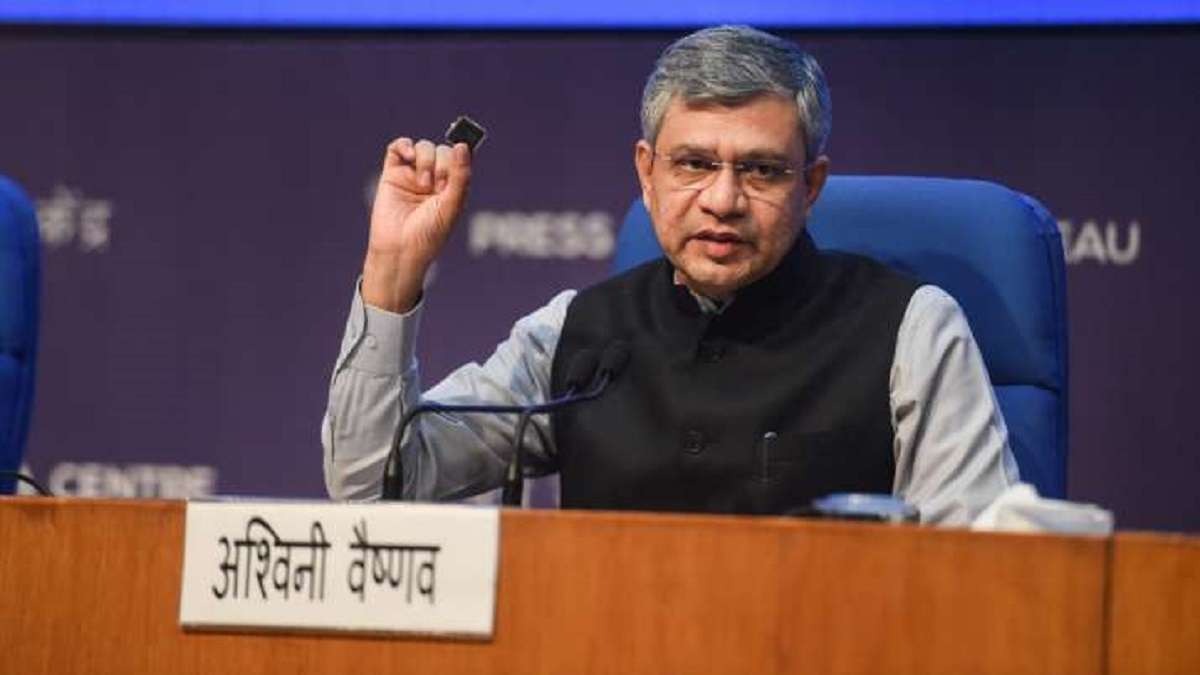
National: Union Railway Minister Ashwini Vaishnaw provided an in-depth overview of the achievements during the first 100 days of the Modi 3.0 government in a special interview.
Vaishnaw highlighted the rapid progress of the metro network, noting its expansion to 18 cities across the country. In the past 100 days alone, the metro network has grown in Pune, Thane, and Bangalore. He also announced the inauguration of a new rapid train service by Prime Minister Modi, which aims to offer affordable travel between major cities. The first train's positive passenger feedback suggests that this service will revolutionise connectivity between nearby cities. He also emphasised that such infrastructure projects not only enhance connectivity but also create numerous job opportunities in design, labor, and architecture.
Vaishnaw also issued a stern warning to individuals suspected of attempting to derail trains, highlighting the government's commitment to addressing these incidents decisively and said that the government is focused on uncovering the root causes of recent derailment attempts and ensuring railway safety.
Vaishnaw detailed the extensive measures taken by the Railways in the past 100 days under the Modi government. He revealed that there have been 97,600 inspections conducted, with 90,000 signaling plants verified and 2,500 kilometers of railway tracks renewed.
He also added that since April 1, 2024, the Railways have conducted 180,000 ultrasound tests on rail tracks and 1.1 million ultrasound tests on welding joints. Additionally, 990 railway bridges have been rehabilitated, and 20 new phased ultrasound machines have been introduced for inspections. The installation of 5,300 fog safety devices has also been completed. Moreover, the risk and hardship allowance for track maintenance personnel has been increased by 25 percent.
Job Creation and Semiconductor Sector Growth
Vaishnaw further discussed job creation stemming from the government's initiatives. He noted that new jobs are being created across various sectors, including mobile, electronics, and device manufacturing. Regarding India's goal of becoming a semiconductor hub, Vaishnaw stressed the importance of establishing a foundational industry within the country. Since 1962, efforts have been underway, and recently, approval for five semiconductor units has been granted, with work starting on three of them. Vaishnaw expressed confidence that, given India's talent pool and the current positive global environment, India will emerge as a top-five player in the semiconductor industry within the next decade.
Investments in Semiconductor Industry
The Minister reported that India has secured investments worth approximately ₹1.5 lakh crore in the semiconductor sector. Manufacturing for Google Pixel has commenced in Tamil Nadu, and laptop manufacturing is also set to begin soon.
Response to Congress Criticisms
In response to criticisms from the Congress party, Vaishnaw defended the government's track record. He highlighted that feedback from the public is taken seriously and addressed accordingly. Vaishnaw criticised Congress for its past policies, such as the UPSC lateral entry policy, which was originally implemented by them and later faced restrictions. He asserted that the Modi government is dynamic and responsive to public needs, unlike Congress, which he accused of merely making noise after failing to deliver in previous terms.
On Rahul Gandhi's remarks made during his visit to the United States, Vaishnaw emphasised the need for responsible discourse on national policies. He argued that constructive criticism should be accompanied by efforts to fulfill responsibilities, suggesting that Gandhi and his party had ample opportunity during their ten-year rule to demonstrate their capability.
Vaishnaw concluded by affirming the historical significance of Narendra Modi’s third term, noting that it is the first time in 60 years that a leader has been re-elected for a third term by the public.
--Advertisement--

 Desk
Desk Share
Share



